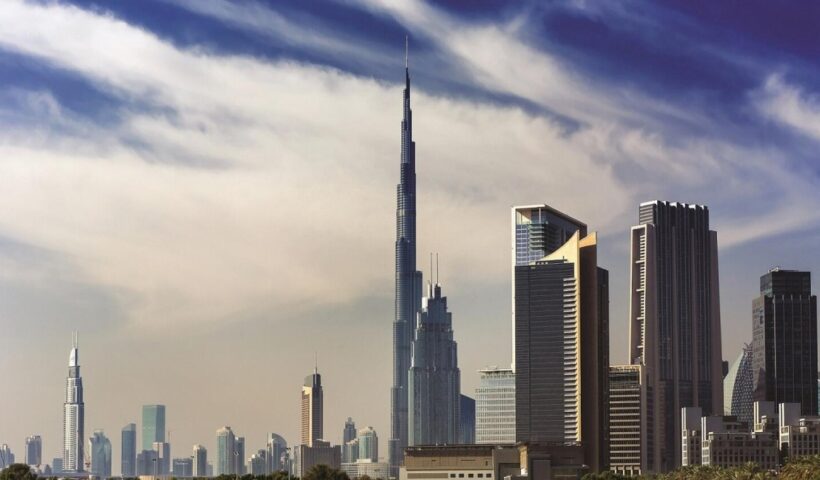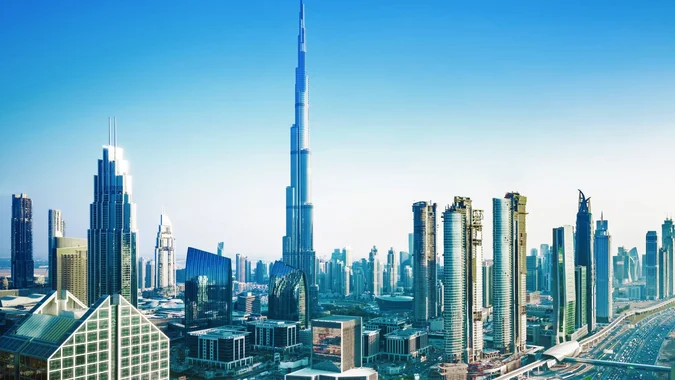Business executives from India have found success in the United Arab Emirates (UAE), where they have built international brands in the world’s oil heartland. Dubai, the most populous city in the United Arab Emirates and one of the cities with the greatest growth rate in the world, draws Indian entrepreneurs because it is convenient for conducting business, has access to top-notch infrastructure, welcomes investors, offers world-class living standards, has no income tax, and is close to Africa, Europe, and India.
All of these business moguls arrived in the Gulf in the 1970s and rose to the top from lowly positions. Before moving to Bahrain, Jagtiani was well-known for operating cabs in London. He later relocated to Dubai and established his Landmark Group there. This organization today has more than 45,000 employees along with more than 1000 stores spread over the Middle East, India, and the Persian Gulf. Pillai left his father’s Kerala farm to launch a construction company in Saudi Arabia. He currently employs over 70,000 people across his various enterprises, which include those in the hotel and hospitality, steel, cement, and the oil and gas sectors.
There are plenty more who have established the standard for achievement. One of these individuals is Sunny Varkey, a son of educators who runs more than 250 schools in 13 nations and is one of the most influential educators in the Gulf. Then there are gold dealer Firoz Merchant, a dropout of school who visited Dubai for his honeymoon but never left, and petrochemical boss Yogesh Mehta, who serves as the chief executive officer of Petrochem Middle East, the biggest chemical distribution company in the Middle East and is ranked number 12 in the world.
The idea that the UAE was famed for luring Indian business tycoons with inexpensive labor disproves the claim.
Indians now dominate the construction, healthcare, retail, financial services, manufacturing, logistics, hospitality, and the whole service sector. They have made their imprint across all industries. They hold a prominent position and are the main contributors to the economy.
Early settlers
For the most part because of their trade and commerce, India has had touch with the UAE for many decades. UAE served as a major destination for Indian blue-collar laborers in the early years. An influx of Indian workers arrived after the 1960s oil discovery. They were primarily from the state of Kerala. However, as the oil sector grew and free commerce in Dubai expanded in the 1970s and 1980s, there was a sharp increase in the number of Indian migrants.
3.5 million Indian expatriates live in the UAE as of now, making up the largest ethnic group there and constituting 27% of the nation’s almost 10 million residents.
Growth
It has drawn a lot of Indians, particularly business owners and tech experts, who are relocating to Dubai, a secure global city with a diverse and multilingual population. Today, highly accomplished professionals make up about 35% of the Indian population in the UAE.
“A number of businesses owned by the Indian diaspora have been able to grow into multinationals in their own right because to the business climate in the UAE. These companies include, among others, the Lulu group in retail, Aster in healthcare, and Sobha in real estate. According to Navdeep Suri, a former Indian ambassador to the UAE and a co-chair of the Federation of Indian Chambers of Commerce and Industry (FICCI) national committee for the Dubai Expo, these enterprises have investments in India and represent a true bridge in commercial relations between India and the UAE. An advocacy and trade association based in India is called FICCI.
“Indians are regarded for their technical proficiency and dedication to discipline. Indian expatriates have an advantage over people of other countries because of these characteristics. Indians have made a significant contribution to the employment sector of the nation as well as established themselves as businesses.
“Dubai, in particular, bridges the time difference between the far West and the far east, particularly when there are crucial meetings or calls. Living in Dubai makes it simple to travel to these areas and makes doing business there easier because we operate all over the world, from the US to Europe and even Japan. Due to the geographic advantage, accessibility is extremely high.
“Due to its strong and stable business ecosystem, Dubai continues to draw investors from India even as the UAE and India cooperate and get closer.
Dubai ranks first among other nations on the happiness rating as well, according to the speaker, thanks to its advanced technology and extensive infrastructure. The Singh Foundation assists business owners in Tier I and Tier II cities in raising capital for their projects. Additionally, it collaborates with Ketto.org to pay for children’s procedures whose parents cannot cover the price.
“Many Indian start-ups and entrepreneurs looking to grow have made investments in Dubai. 200 of the 3,000 start-ups in Dubai were created by Indians, according to Singh, who was recognized as one of the Times’ 40 under 40 young people and was listed among Fortune India’s 50 most powerful female entrepreneurs in 2020.
In Dubai’s real estate market, Indian investors come in first place. According to figures from the Dubai Land Department, more than 5,000 Indians invested more than Dh10.89 billion in Dubai’s real estate market in 2019.
Indian Prime Minister Narendra Modi made reference to the contribution of the Indian diaspora, which is heavily involved in charitable endeavors, during his visit to the United Arab Emirates. Since 2014, Modi has made two trips to the UAE, and he stated that “India is delighted of the reality that more than 30 lakh Indians constitute a component of the development process of Gulf countries.”
The UAE is home to a diaspora of 3.5 million Indians who serve the nation well and make significant contributions to its development.
Young second-generation Indians are currently growing their influence, either as business owners or as successors to family firms, armed with foreign degrees and computer know-how.
Growing Indian business activity in the United Arab Emirates contributes to improved diplomatic and commercial ties between the two nations.



